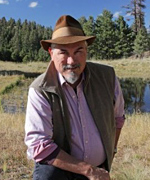Bills are still dropping at the Legislature and could change radically before the end of February, but here is the current picture on proposals related to water.
HB 2112: Prevents CAWCD employees or their spouses from running for the board of directors and requires listing on the ballot the party affiliation for board candidates. Introduces partisanship into water issues that previously were above politics.
HB 2317: Requires ballots to list party affiliations for all candidates, including the CAWCD board of directors, and also requires participation in the party primary. Goes even further in interjecting politics into water issues, potentially paralyzing needed agreements.
HB 2179: Requires intergovernmental agreements to be limited to 8 years before renewal plus complete review of all IGAs by the governing body in a public hearing; this would include leases of water rights. Many water agreements are IGAs, some quite old, and unforeseen consequences could abound.
HB 2330: Establishes a tax credit for rainwater harvesting or residential graywater systems up to $1,000, not to exceed a grand total of $250,000 to the state. This renews a tax credit dating from 2007–2011 to incentivize graywater use.
HB 2036: Minor adjustments to poor-quality groundwater withdrawals permits. This could be a striker bill in waiting. This year the House has a new rule that says all striker bills must be related to the original bill’s subject matter.
HB 2130: Requires ADEQ to submit a report to the Governor, Speaker, and Senate President annually detailing progress on the Maximum Daily Load program to improve impaired surface waters under the Clean Water Act. Ups the reporting requirement from every 2 years to every year. The proposal has already cleared the Energy, Environment, and Natural Resources Committee.
HB 2193: Creates a task force of legislators and stakeholders to look at a framework for a property development credit program to encourage acquisition of land for conservation areas to support watersheds and groundwater resources. In exchange for credits to offset water use, developers could transfer property for conservation areas. Concerns in Mohave County prompted this bill, but it may not move forward.
HB 2231: Establishes a desalination study committee to collect information on desalination in Arizona. This could undercut efforts by the Governor’s Water Augmentation Council; it too could be a striker.
SB 1124: Appropriates $1M for FY2018 for the Arizona Water Protection Fund. AWPF funds projects to protect water quality in Arizona’s streams and riparian areas. This bill is thankfully moving forward.
SB 1165: Requires a landowner wanting to drill an exempt well on land within 100 feet of the system of a provider with a Designation of Assured Water Supply to obtain three bids. Apparently, crafty drillers in Yavapai County have been radically lowballing bids to skirt the restrictions against more exempt wells inside city service areas.
SB 1280: Prevents ADWR from doing anything in the Pinal AMA to reduce amounts of credits for extinguishing irrigation grandfathered rights. Groundwater mining in Pinal County would surge if this passed, but it didn’t pass last session.
SB 1412: Outlines the sequence of claims by type that the adjudication court must address, with federal claims first, then non-federal non-small claims, then small claims. Rural interests would like to streamline the adjudications process and actually see it start moving in their lifetimes.
SJR 1001: Recognizes that 2017 is the 95th anniversary of the Colorado River Compact. This is a striker bill for the Drought Contingency Plan. SJR 1003: Authorizes ADWR to enter into forbearance agreements that implement terms of any new treaty minute between Mexico and the U.S. The existing authority expires at the end of 2017, and ADWR may need to set up pools of Intentionally Created Surplus water based on agreements between Mexico and various parties in Arizona.
Perhaps the most worrisome bills are the two House bills that require candidates for several offices, including the CAWCD board, to be identified on the ballot by their party affiliation. Partisan politics has become very ugly over the last few years. Interjecting party loyalties into water issues is not a good thing and could foretell major conflicts to come that would prevent action just when Arizona needs it most.
Water has always transcended politics in Arizona. We should keep it that way.
